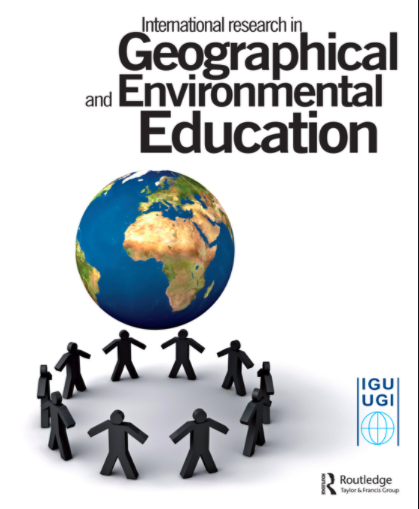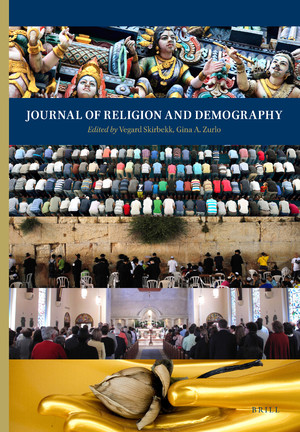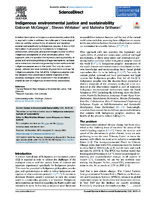Search
6 items
-
How do we Communicate Environmental Ethics? Reflections on Environmental Education from a Kuwaiti Perspective
Dr. Khadija al-Naki, an educational researcher, discusses Islamic thought in relation to environmental education. Comparing Islamic teachings with Western environmental ethics, al-Naki opens a conversation on how to develop an environmental curriculum in Islamic education systems. This article leaves the reader questioning the role of education in the environmental movement.
Published in the journal International Research in Geographical and Environmental Education. -
A Spiritual Dimension and Environmental Education: Buddhism and Environmental Crisis
Kongsak Thathong writes about the environmental crisis and how a Buddhist environmental ethic may help in solving environmental problems. Buddhism may also help in education; the Lord Buddha encouraged environmental education, and learning about the Earth and its resources may protect it from the greed and selfishness that humanity spreads. Buddhism's three tenets of Right Behavior, Mind, and Understanding are virtues that people can change in themselves to care for the Earth.
-
Religious Affiliation and Environmental Challenges in the 21st Century
"As the impacts of climatic change increase, the share of the world population with a religious affiliation is expected to rise (from 84% in 2010 to 87% by 2050). Religion is important for climate change relevant behaviours, including fertility choices or whether one sees climatic change as due to human action or related to forces beyond human control. We conduct exploratory and descriptive statistical analyses to better understand the associations among religion, on the one hand, and economic development, greenhouse gas emissions, exposure to environmental stressors, and attitudes, beliefs and environmental performance, on the other. We show that countries with lower shares that are religious tend to have more emissions, to be better prepared for environmental challenges and have low or negative population growth. Countries with a greater proportion of religiously affiliated tend to have higher population growth, face more environmental risks and to be less prepared for those risks. Identifying groups that disproportionally cause or are exposed to environmental risks represents an issue of environmental justice. Understanding the religious composition of the world along with environmental changes can further help identify which environmental policies that could be more effective." -
Ecological Consciousness in Jainism: Exploring Realities, Constraints, and Traditions
This paper explores the traditions and philosophies of Jainism and how that influences its connection to the environment. The author explains the Jainism cosmology and the distinction between different senses as they apply to animate and inanimate beings. Jain literature understands human connections to the world with an emphasis on the interconnectedness of life forms. To Jains, environmental concerns cannot be separated from socio-economic concerns. -
Indigenous environmental justice and sustainability
Current Opinion in Environmental Sustainability
Volume 43, April 2020, Pages 35-40 -
Sacred Watersheds and the Fate of the Village Body Politic in Tibetan and Han Communities Under China’s Ecological Civilization
Coggins studies the spiritual ecologies of Tibetan and Han communities in the People's Republic of China. The Tibetan animism focuses on the protection of landscapes because of their relation to various deities and spirits. Han communities worked on creating fengshui forests to find balance a balance of qi in all things.






